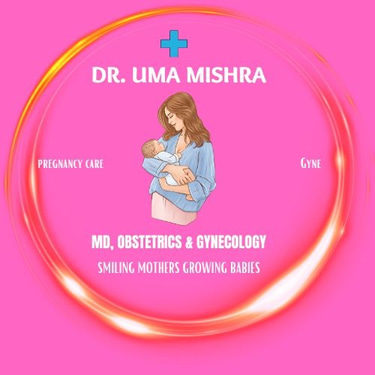Genetic Testing in Pregnancy: Latest Methods and the Importance of Consulting a Gynecologist
2/7/20244 মিনিট পড়ুন


Genetic testing during pregnancy has become an essential part of prenatal care, allowing gynecologists to identify any potential genetic defects in the fetus. These tests help parents make informed decisions about their pregnancy and ensure the best possible outcome for both mother and baby. In this article, we will explore the latest methods of genetic testing and highlight the reasons why women should consult a gynecologist for these tests. Genetic testing has advanced significantly in recent years, offering more accurate and comprehensive results. One of the latest methods is Non-Invasive Prenatal Testing (NIPT), which involves analyzing cell-free fetal DNA present in the mother's blood. This test can detect chromosomal abnormalities such as Down syndrome, Edwards syndrome, and Patau syndrome with a high degree of accuracy. NIPT is a safe and non-invasive procedure, making it an attractive option for many expectant mothers. Another commonly prescribed test is Chorionic Villus Sampling (CVS), which involves taking a sample of cells from the placenta. This test is usually performed between 10 and 13 weeks of pregnancy and can provide information about the baby's genetic makeup. CVS is particularly useful for detecting certain genetic disorders, such as cystic fibrosis and sickle cell anemia. However, it carries a slightly higher risk of miscarriage compared to other tests. Amniocentesis is another well-known method of genetic testing. This procedure involves extracting a small amount of amniotic fluid from the sac surrounding the fetus. Amniocentesis is typically performed between 15 and 20 weeks of pregnancy and can detect chromosomal abnormalities, neural tube defects, and genetic disorders. Although it carries a small risk of complications, such as infection or leakage of amniotic fluid, it remains a valuable diagnostic tool. Now, why is it important for women to consult a gynecologist for genetic testing? Firstly, gynecologists are trained professionals who specialize in women's reproductive health. They have the knowledge and expertise to guide expectant mothers through the various testing options available. Gynecologists can assess the individual needs and risks of each patient and recommend the most appropriate tests based on their medical history and family background. Furthermore, gynecologists have access to the latest developments and advancements in genetic testing. They stay updated with the evolving field and can provide accurate information about the benefits, limitations, and risks associated with each test. This ensures that expectant mothers receive reliable and up-to-date advice, enabling them to make informed decisions about their pregnancy. In recent years, there have been significant developments in the field of genetic testing. The emergence of NIPT has revolutionized prenatal screening, offering a safer and more accurate alternative to traditional methods. Additionally, advancements in genetic sequencing technologies have improved the detection rates and reduced the risk of false positives or negatives. In conclusion, genetic testing plays a crucial role in ruling out genetic defects in the fetus and guiding expectant parents in making informed decisions.
The latest methods, such as NIPT, CVS, and amniocentesis, offer accurate and comprehensive results. Women should consult a gynecologist for genetic testing due to their specialized knowledge, access to the latest developments, and ability to provide personalized care. With the guidance of a gynecologist, expectant mothers can navigate the complexities of genetic testing and ensure the best possible outcome for their pregnancy.
During pregnancy, expectant parents are often presented with various screening options to ensure the health and well-being of both the mother and the baby. One such advanced screening tool gaining popularity is the Non-Invasive Prenatal Testing (NIPT). This article aims to shed light on the advantages of NIPT and the optimal timing for undergoing this important test.
Understanding NIPT:
Non-Invasive Prenatal Testing (NIPT) is a revolutionary screening method that analyzes cell-free DNA (cfDNA) in the maternal bloodstream. This DNA is derived from both the mother and the developing fetus, providing valuable insights into the baby's genetic makeup.
Advantages of NIPT:
Accuracy in Detection: NIPT boasts an impressive accuracy rate in detecting certain chromosomal abnormalities, such as Down syndrome (Trisomy 21), Edwards syndrome (Trisomy 18), and Patau syndrome (Trisomy 13). Its high sensitivity and specificity make it a reliable choice for expectant parents seeking comprehensive information about their baby's genetic health.
Non-Invasive Nature: One of the key advantages of NIPT is its non-invasive nature. Unlike traditional invasive tests like amniocentesis or chorionic villus sampling (CVS), NIPT requires only a simple blood draw from the mother. This reduces the risk of complications associated with invasive procedures, making it a safer option.
Early Detection: NIPT can be performed as early as 9-10 weeks into the pregnancy. Early detection of genetic abnormalities allows parents more time to make informed decisions, explore available support systems, and consult with healthcare professionals to plan for any potential medical interventions.
Reduced False Positive Rate: NIPT has a lower false positive rate compared to some traditional screening methods. This means fewer unnecessary invasive procedures for further confirmation, reducing potential stress and anxiety for expectant parents.
Additional Information: Apart from chromosomal abnormalities, NIPT can provide information about the baby's sex and blood type. This additional information can contribute to a more comprehensive understanding of the baby's health.
When Should NIPT Be Carried Out:
The optimal timing for NIPT is typically between 9 and 12 weeks of pregnancy. During this period, there is a sufficient amount of fetal DNA in the maternal bloodstream for accurate analysis. Early testing allows for timely decision-making and access to appropriate medical care if any abnormalities are detected.
Dr Uma MIshra is one of the finest Gynecologists in Noida. Consult Now for Best Pregnancy Care.
